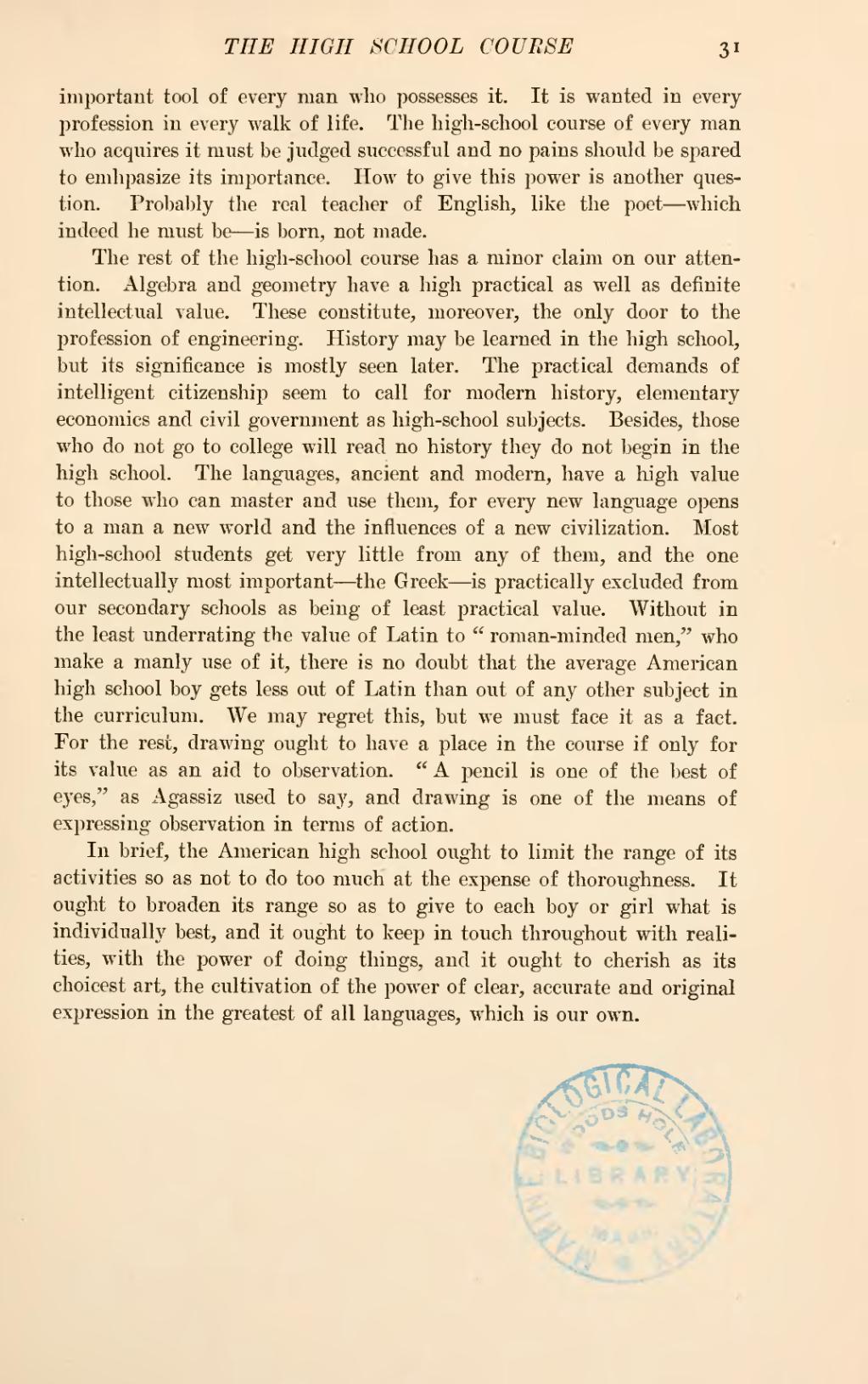important tool of every man who possesses it. It is wanted in every profession in every walk of life. The high-school course of every man who acquires it must be judged successful and no pains should be spared to emhpasize its importance. How to give this power is another question. Probably the real teacher of English, like the poet—which indeed he must be—is born, not made.
The rest of the high-school course has a minor claim on our attention. Algebra and geometry have a high practical as well as definite intellectual value. These constitute, moreover, the only door to the profession of engineering. History may be learned in the high school, but its significance is mostly seen later. The practical demands of intelligent citizenship seem to call for modern history, elementary economics and civil government as high-school subjects. Besides, those who do not go to college will read no history they do not begin in the high school. The languages, ancient and modern, have a high value to those who can master and use them, for every new language opens to a man a new world and the influences of a new civilization. Most high-school students get very little from any of them, and the one intellectually most important—the Greek—is practically excluded from our secondary schools as being of least practical value. Without in the least underrating the value of Latin to "roman-minded men," who make a manly use of it, there is no doubt that the average American high school boy gets less out of Latin than out of any other subject in the curriculum. We may regret this, but we must face it as a fact. For the rest, drawing ought to have a place in the course if only for its value as an aid to observation. "A pencil is one of the best of eyes," as Agassiz used to say, and drawing is one of the means of expressing observation in terms of action.
In brief, the American high school ought to limit the range of its activities so as not to do too much at the expense of thoroughness. It ought to broaden its range so as to give to each boy or girl what is individually best, and it ought to keep in touch throughout with realities, with the power of doing things, and it ought to cherish as its choicest art, the cultivation of the power of clear, accurate and original expression in the greatest of all languages, which is our own.
